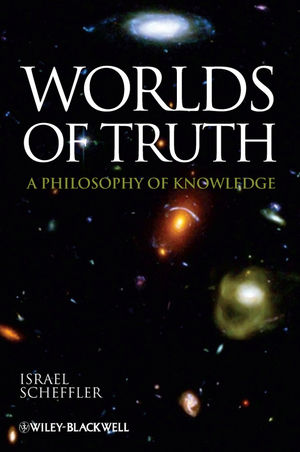Worlds of Truth: A Philosophy of KnowledgeISBN: 978-1-4051-9170-8
Hardcover
168 pages
April 2009, Wiley-Blackwell
 |
||||||
"This volume will be useful for specialists in pragmatism, but perhaps not sufficiently original for all collections." (CHOICE, October 2009)
"Worlds of Truth develops an epistemology that accommodates science. It construes knowledge as advancing holistically. Because justification accrues through systematization, it is a property of theories, not primarily of individual sentences. Drawing on and contributing to the pragmatic tradition, Scheffler shows how a commitment to fallibilism is not a concession to epistemic inadequacy but an asset to understanding."–Catherine Z. Elgin, Harvard University
"Israel Scheffler’s Worlds of Truth is a book that
can be read with profit and enjoyment by the general reader as well
as by the philosophical expert. In recent years both general
readers and professional philosophers have tended to think of
"pragmatism" as a fuzzy philosophy closely allied to postmodernism,
and as in deep opposition to analytic philosophy, which is often
seen as anti-humanistic. In this important book, and in clear and
elegant prose, Scheffler performs a great service by showing in
detail how to combine the antifoundationalism, the holism, and the
deep fallibilism of the pragmatists with the respect for the notion
of absolute truth, and the sharp distinction between being true and
being warranted at a given moment characteristic of the analytic
philosophers. The result is both an attractive and I believe
largely right epistemological picture, and a portrait of the
philosophical thinking of a significant philosopher, whose work
deserves to be more widely known."
–Hilary Putnam, Harvard University
"Many things pass for 'pragmatism' these days that the original
pragmatists would not recognize. It might well be said that the
pragmatist tradition has lost its way. It is the perfect time for
this book, which builds upon the groundbreaking work of the
original figures, but does not hesitate to criticize their earlier
discussions where appropriate and improve on them in the service of
the development of a philosophically adequate pragmatic
epistemology and metaphysics."
–Harvey Siegel, University of Miami



